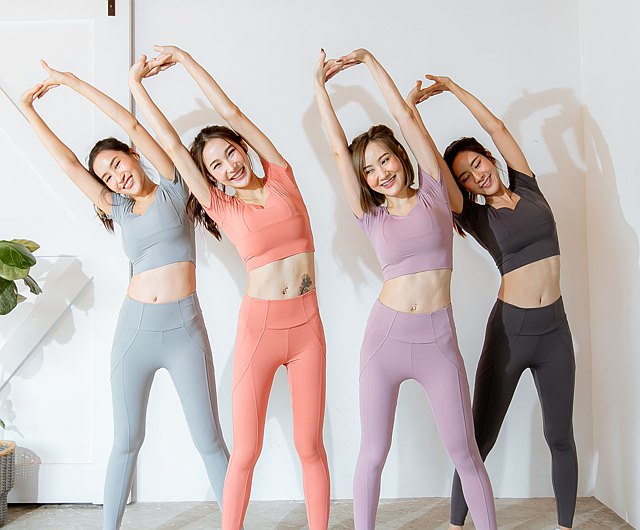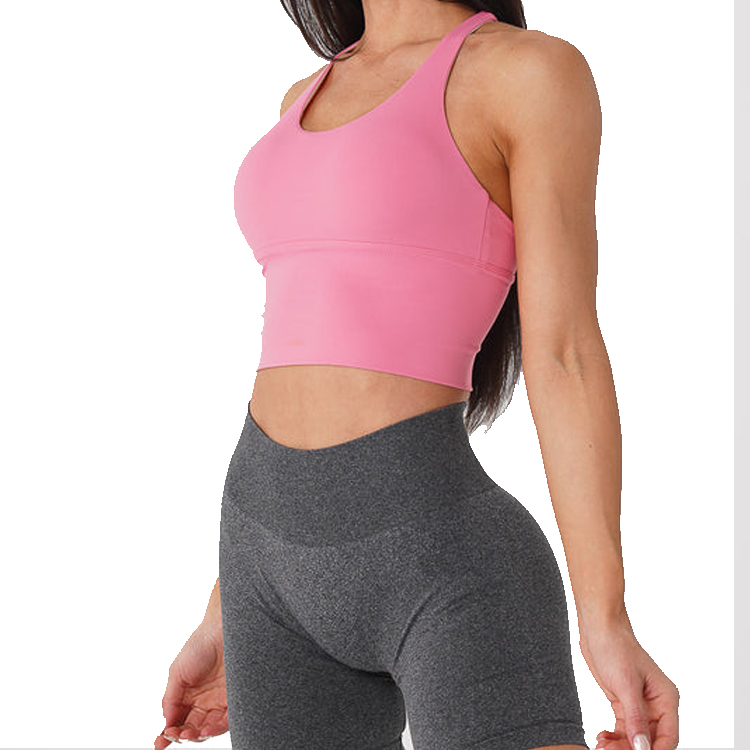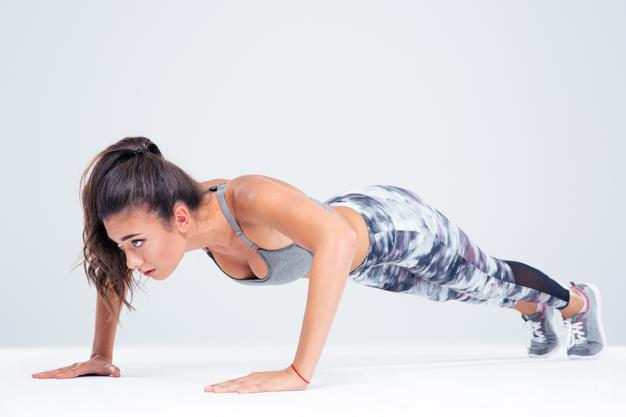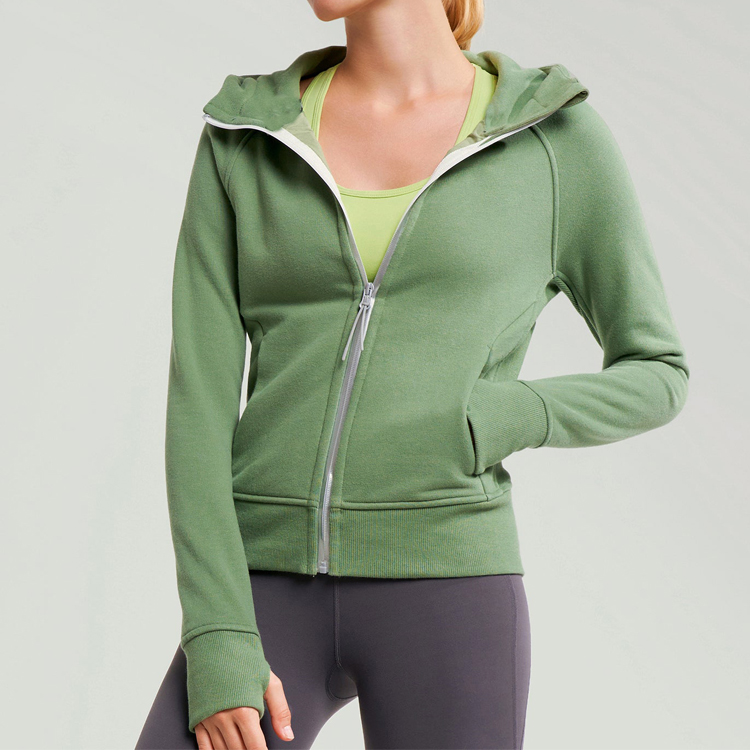Activewear is more popular now than ever, but with the current rise of activewear and so many options to choose from, it can be hard to know your yoga pants from running tights
We live in an era of exploding fashion and fitness markets, leaving us with endless fitness wardrobe possibilities, but how do you decide what to wear? Here’s your go-to guide for
gym apparel and all your workout apparel.
Sports Bras
As you bounce and jump during a workout, you can end up doing damage to your breast tissue if you don’t have appropriate support. Especially if you have a larger bust, wearing
the perfect sports bra is paramount to both comfort and health. When it comes to sports bras, ask yourself the following three questions:
1. Does it dig?
Whatever your sport or training regime, you need a good range of motion without irritation. Underarm rash is not only painful, it can restrict your range of motion. Take your new
potential purchase to the changing room for some alone time and try moving around in it like you would if you were training.
2. Will it rub?
This is hard to tell from a changing room test, but after having a move around, if there is no digging or chafing, pull at the bra straps and see how much movement you get. Next
test, how many fingers can you fit down the sides of the bra? It needs to be tight to support you whilst also allowing movement, ideally no more than a finger width. Too much
movement of the bra will make it more likely to rub and means it probably lacks the support you bought it for in the first place.
3. Do they bounce?
If you’ve gotten away with dancing in the changing room, now it’s time to jump around. No matter how good your bra, there will always be a bit of a bounce during your workout, but
this should be a small bounce. You should feel contained but still able to breathe.
Running tights
Running tights must be highly technical, functional and comfortable so they can go further with you. Running tights now help wick away sweat, keep the body at the right
temperature, and aid circulation through its compression technology. Check out the features below to make sure you’re getting the best running leggings for you.
1.thickness
Leggings come in a variety of thicknesses, depending on what time of year is the best for you. Thicker tights, while great for extra warmth in winter, often limit your range of motion,
can be heavy when running, or can chafe. By contrast, tights that are too thin can give you chills in your legs and risk being seen through when you bend over.
We recommend that you test your tights through the locker room, experiment with your range of motion, bend over and do a mirror check, so you can avoid any potential flickering
embarrassment. Also, keep in mind that lighting will vary; dressing room lighting can often be designed to hide these little details, so step out of the curtains and check mirrors
elsewhere in the store to be really sure.
2.belt
The belt has two key tests, whether it sits comfortably without chafing, and whether it stays in place. One of the worst things is having to constantly interrupt your rhythm to pull up
your leggings while running. Typically, you’ll find three types of waistbands: elastic fit, wide waistband fit, or lace-up fit.
A stretchy fit works well if the material is of good quality, but since you’re totally dependent on their ability to bounce back, cheap materials may lack the support needed to hold
tights.
The wide waistband provides more comfort and is less prone to slipping. The lace-up waistline ensures a secure fit, but they can be uncomfortable if you wear them for extended
periods of time as they also tend to chafe, so it’s worth investing in a pair of soft, smooth laces that you don’t have to pull too tight for a snug fit.
3.length
While full-length leggings offer the most streamlined performance and thermal protection, cropped leggings, sometimes referred to as capri pants, are also popular. These are done
below the knee and are perfect for those running in warm weather or looking for more functionality from tights. The ¾ length is also suitable for transitional movements, such as
from running to yoga.
Sport jacket
It can be cold to work out in the winter, hell, we live in the UK and it can be cold to work out in the summer! The perfect jacket should keep you warm while training while remaining
comfortable and stylish to wear when you’re not working out, whether you’re shopping in a hurry or just hanging out at home. The most important things to look out for when
choosing a sports jacket are warmth and visibility. If you’re training in a cold winter, it’s likely to get dark faster, so if you hit the pavement, visibility is critical to staying safe. Look for
garments with reflective strips, like our Grand Combin and Monte Rosa. Keeping warm aside, it’s safe to say that since we live in the UK, your jacket needs to help keep you from
getting wet, look for waterproof materials to ensure you don’t end up getting (too) wet.
Workout tops
Sports tops are definitely a must-have in your sports wardrobe, but get it wrong and you can get irritated, soaked, and sporty sweat patches that you can’t even hide your arms
down.
Post time: Oct-26-2022



